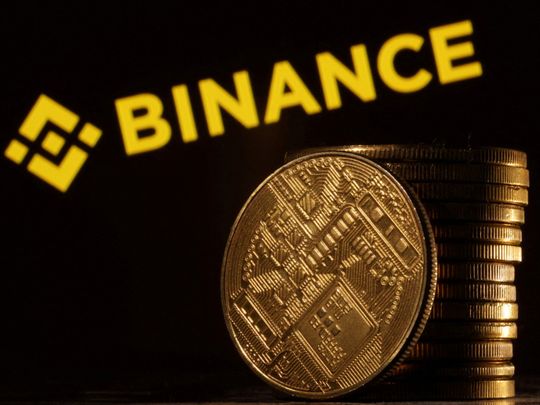
Dubai: The UAE and Bahrain’s virtual asset laws place MENA markets at a competitive advantage for cryptocurrencies and trading in them. This will add greater depth to this marketplace, according to a senior official with Binance, the world’s biggest crypto trading platform.
“(Dubai’s) VARA license allows us to onboard clients and fit their criteria globally,” said Alex Chehade, General Manager for the MENA territory. “(In Abu Dhabi), ADGM (allows to) onboard clients from almost all countries, except those sanctioned. Bahrain is similar.
“We reach out proactively to all regulators and during dialogues with each, we understand more about what they expect from us.
Read more
“Obviously, some jurisdictions are moving quicker with crypto regulation, and this is why we’ve established a large footprint in MENA. Because governments have decided that the Web3 economy is something they want to foster. They set frameworks that enable building the ecosystems.”
In Dubai, the Virtual Assets Regulatory Authority has been busy with enabling rules that expand the scope of those companies licensed with it. April 30 is the deadline for all ‘initial disclosure questionnaires’ to be answered by companies offering crypto-related products and services. This applies to those related entities licensed by free zones too.
On Thursday (April 20), the European Union’s parliament voted overwhelmingly in favour of the bloc’s first set of rules for crypto assets and the trade in them.
There's always going to be new tokens created in cryptocurrency. That's the nature of the beast. It's relatively easy to set up a token, but to get it to a large size, takes a lot of work and a large community.
Picking up those licenses
In Abu Dhabi, Binance has a crypto custody license, and the VARA licenses cover crypto exchange, crypto custody, brokerage, and crypto payment. “That’s the majority of our business, Binance’s core business is exchange,” said Chehade.
Well-insulated from US operations
The company is going through some intense federal scrutiny in the US related to possible trading using the platform’s non-US operations by its US clients. Through this period, Binance has managed to insulate the rest of its global operations from the US investigations.

“Any US client will trade on Binance US, which is a completely segregated business unit.”
Whatever the investigations throw up, there is no denying the influence Binance brings to the crypto table – globally. Much more so after the implosion – brought on by internal fraud – that took down the other heavyweight, FTX, and its founder Sam Bankman-Fried.
Navigating through the FTX blowout’s aftermath has been perilous for the crypto industry – and trading platforms.
We are only seeing larger cap tokens be listed where there are proven use cases for the token. Yeah, we definitely pivoted that way.
Some light shining through on Bitcoin, cryptos
But as of today, crypto assets are having a mini-renaissance. The most vital piece of this asset universe, Bitcoin, is hovering closer to $30,000 – levels that had seen beyond it as recently as November/December last.
“There’s a lot of resilience in crypto - it’s supposed to be adjunct of normal macrocycles,” said Chehade. “You see booms and busts, and due to the fact that cryptocurrencies and virtual assets have a much lower market cap, they are more likely to have these kinds of moves.
“Yet, in Q1-23, it’s up 49 per cent.
“It’s still emerging, there are still going to be price fluctuations. This has historically been the case. When commodities became an asset class exposed to all portfolios, it wasn’t until the 1970s that it would become one of the more heavily traded. The more heavily traded it is, the less volatile.
“We’re seeing the development of regulatory outposts, especially in MENA. Having these regulated marketplaces give investors, institutions, and retail investors the comfort that these are the right places to trade these assets.”
Europe is now the first continent with comprehensive regulation for crypto assets. For new coins to be approved in the EU, it must be ensured in future that their business model will not endanger our currency stability.
The new supervisory structures will also be a bulwark against Lehman Brothers moments like the crypto exchange FTX. The legislation means that the EU will have a unified approach to crypto asset regulation across all 27 member-states, meaning firms approved in one country can ‘passport’ their operations into others.
This is a landmark moment for crypto. It signals the maturing of the market and underscores that cryptocurrencies are now mainstream. Crypto has now come of age in Europe as it is being brought into the regulatory tent and being held to the same standards as the rest of the financial system.
Digital is the inevitable future of finance. Therefore, the proactive, forward-thinking work being done by central banks and governments, among others, in this area must be championed.’
- Nigel Green of deVere Group






